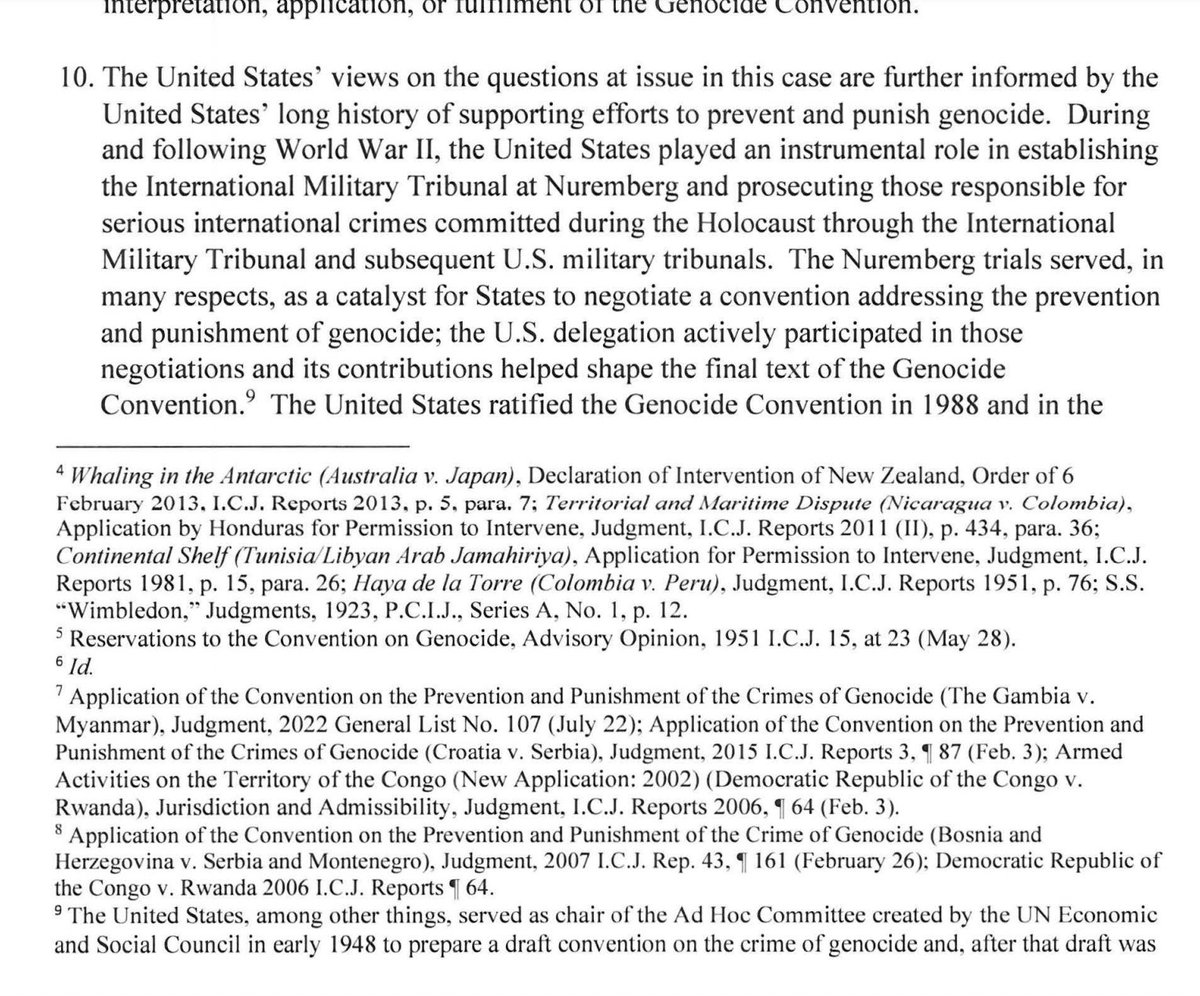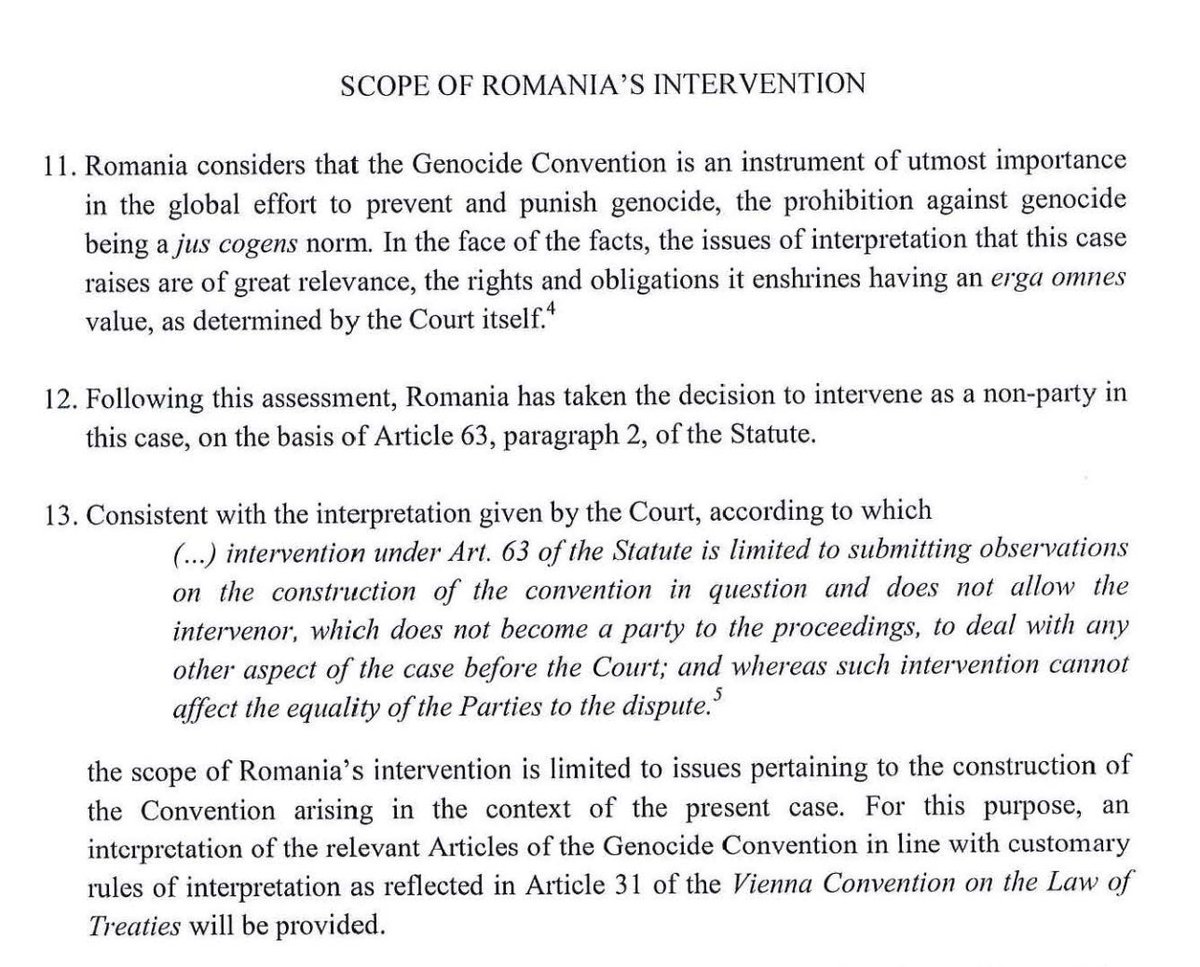#US declaration of intervention in #Ukraine v #Russia, under art 63 of the #ICJ Statute, is now available on the Court's website: icj-cij.org/public/files/c…
Some observations. 🪡 1/14
Some observations. 🪡 1/14
https://twitter.com/CIJ_ICJ/status/1567923443278151681
In its opening remarks, the #US follows the trend of other states by invoking its right of intervention under art 63, but also underlining the erga omnes partes nature of the Genocide Convention obligations. 2/ 

For its personal touch, US underlines its involvement in developing the Convention and pointing to its past invocation of art VIII regarding Darfur (recourse to UN organs) and its support [yes, I know] for tribunals prosecuting genocide and other crimes. 3/ 



Wasting no time, the US makes clear at the outset perhaps what will be one of the most controversial aspects of its intervention: its construction of the compromissory clause (art IX). Note that the US entered a reservation regarding that very provision. 4/ 

The US addresses its reservation in a footnote to a different paragraph (where it confirms its party status to the Convention). The US adopts a very literal interpretation of art 63 and the Wimbledon judgment. 5/ 

Critics would likely point to art 21(1) #VCLT, in that for the US's intents and purposes, the Genocide Convention to which it is party does not include an art IX as such, but rather as it has modified through its reservation. 6/ 

Moving on. In declaring the provisions it seeks to give a construction, the US cites arts I, II, Ill, IV, VIII, IX. The US also refers to arts 31-32 of the VCLT as the customary rules of interpretation relevant for its constructions. 7/ 

The US proceeds in analysing the cited provisions of the Genocide Convention. It recalls the ICJ's jurisprudence on the due diligence obligation to prevent genocide through means permitted by international law and also analyses the meaning of "genocide" under the Convention. 8/ 



Interestingly, the US seems to concede the discrepancy between its interpretative declaration upon ratification and the ICJ's jurisprudence on destruction "in part" of a protected group, but without conceding its position. 9/
The US then proceeds to make the (straightforward) point, on the basis of a survey of its provisions, that the Genocide Convention does not authorise aggression in the prevention of genocide. 10/ 







US then proceeds to make the argument that jurisdiction extends to adjudicating non-violations (albeit not with that heading). It emphasises the broad wording of art IX while also citing statement in travaux by #India representative to support that understanding. 11/ 



In conclusion, the US declaration makes quite straightforward interpretations of the Convention. Yet (at least for me) the elephant in the room is the US reservation to art IX. 12/
It should be emphasised that the reservation would not seemingly get in the way of the US's constructions of the substantive obligations under the Convention; particularly, its defining genocide and arguing the lack of authorisation to engage in aggression. 13/
Yet, the tricky part will be reconciling the US's constructions relating to jurisdiction for non-violations and its reservations to the compromissory clause. 14/14
And with that, Shabbat Shalom!
And with that, Shabbat Shalom!
• • •
Missing some Tweet in this thread? You can try to
force a refresh























